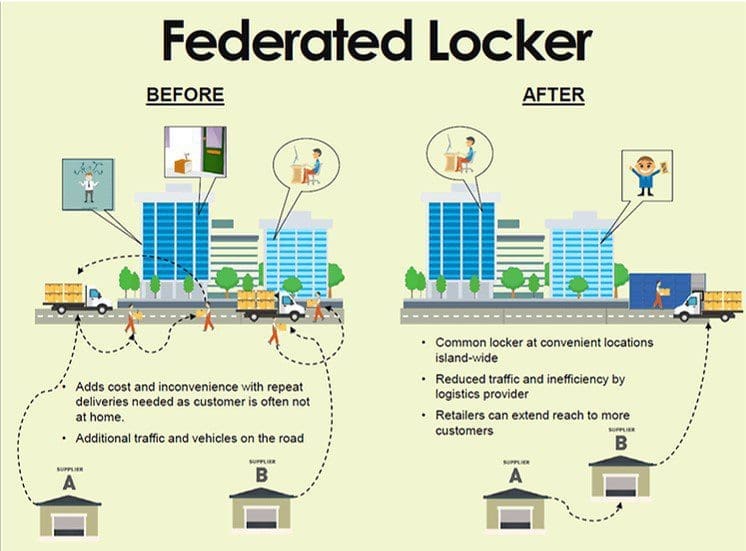The small Southeast Asian nation of Singapore is no slouch when it comes to logistics capabilities. Evidence of this comes in empirical forms such as its consistently high position in the World Bank’s Logistics Performance Index – 7th out of 160 countries in 2018 and one of only two Asian nations in the top 10 (Japan being the other one), and its ranking as second busiest port globally in 2018 – achieved largely through highly efficient logistics systems to handle time-sensitive transhipment cargo. It is also evident in the first-time visitor’s experience of arriving at Changi Airport and experiencing its short immigration queues, fast plane-to-belt luggage arrival times, and very orderly out-to-city transport system.
Not surprising then that the government is working hard to ensure Singapore maintains its position as a global logistics hub and that the economy continues to benefit from superior logistics performance. Launched in 2016, the Logistics Industry Transformation Map (ITM) laid out a number of initiatives to develop and evolve the sector, such as encouraging logistics companies to adopt advanced, productive technologies and encouraging a strong talent base for the industry by developing a skills framework and facilitating mid-career transitions.
In particular, given the rise of all things digital, the Singapore government is encouraging the roll-out of solutions that neatly leverage newly available technologies to enhance and transform logistics capabilities. One of these is the Federated Lockers and Collection Points initiative, which aims to solve the age-old last mile delivery problem of consumers not being at home when the parcel delivery man calls.
Launched at the end of 2018, the Locker Alliance pilot is a one-year program to test out the Federated Locker concept by establishing 70 locker sites covering two residential districts and eight urban metro stations. The Alliance part is key and comes from the drive to bring industry players, including e-commerce companies, locker operators and logistics service providers, onto a single interoperable platform, developed by Singapore-based software-as-a-service provider Parcel Perform.
The Federated Locker Interoperability Platform notably allows different parcel locker systems to work together, facilitating rapid implementation of the necessary infrastructure, and means that online retailers and logistics service providers can deliver to any locker in the network, while locker operators can look forward to high utilization of their assets. For instance, in the Locker Alliance pilot, lockers in one of the two districts are operated by national mail carrier SingPost and in the other by local retail logistics company Blu Logistics, and a total of 15 companies have so far signed on to the Locker Alliance.
To order to send, retrieve, return and track parcels on a shared platform necessitates adoption of a common communication and messaging protocol by the various Locker Alliance partners. Accordingly, developed by the Infocomm Media Development Authority (IMDA), the government body leading Singapore’s digital transformation initiatives, and the Singapore Manufacturing Federation, the Technical Reference 61 (TR 61) standard on data interchange for last mile delivery provides a framework to facilitate the required interoperability between different parcel locker networks and caters to a wide range of delivery process scenarios.

The IMDA says that once implemented island-wide, logistics service providers can potentially see a 50 percent reduction in distance traveled by drivers and a five-fold improvement in parcel delivery efficiency. Other benefits include reduced traffic congestion and carbon emissions from fewer multiple-location small parcel deliveries. The Federated Lockers initiative also serves to support the expected strong growth in e-commerce revenues, which in Singapore are expected to double over the 2018-22 time-frame.
Looking beyond Singapore, efforts to build an Asian locker alliance received a boost with the IMDA’s inking of a Memorandum of Intent (MOI) with three locker operators in the region: Box 24 (Thailand), Pakpobox (Hong Kong) and Popbox Asia (Indonesia). A network of inter-operable locker systems across countries promises increased regional reach opportunities for online retailers as well as for logistics service providers looking to deliver on that last mile.
Bob Gill is General Manager, Southeast Asia, at ARC Advisory Group.
















